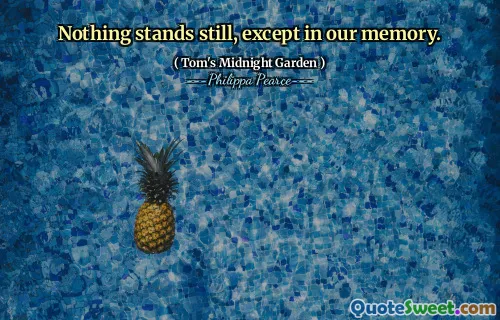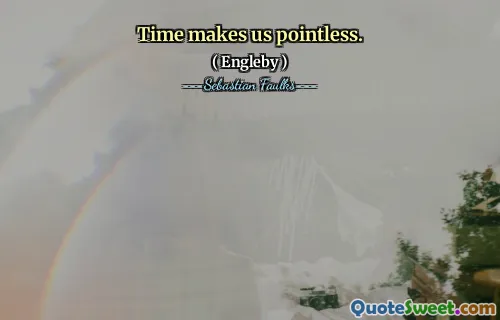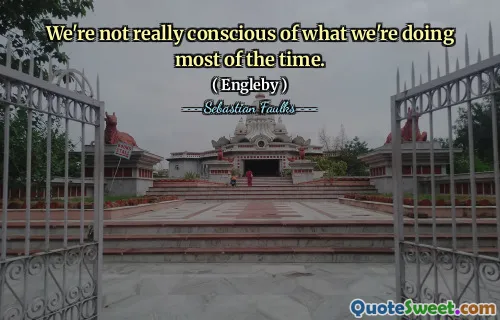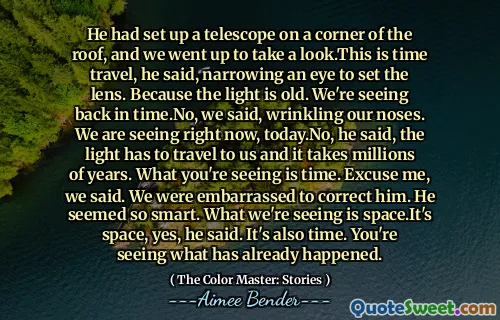I write this in the moonlight, straining my ears to hear beyond the cold mechanical clock to the warm biological noises of the night, but my being is attuned only to one thing, the relentless rhythm of time.If I could only smash the clock and stop time from advancing! Crush the infernal machine! Shatter its bland face and rip those cursed hands from their torturous axis of circumscription! I can almost feel the sturdy metal body crumpling beneath my hands, the glass fracturing, the case cracking open, my fingers digging into the guts, spilling springs and delicate gearing. But now, there is now use, now way of stopping time.
In this passage, the author conveys a profound longing to escape the relentless passage of time, symbolized by a mechanical clock. The protagonist listens to the natural sounds of the night, yearning for a connection to life beyond the clock's ticking. This tension highlights the conflict between the organic and the mechanical, suggesting that time’s progression is a source of anxiety and frustration.
Imagining the destruction of the clock, the protagonist envisions a visceral and violent release from the constraints of time. Despite the desire to halt its advance, the reality remains that time cannot be stopped, reinforcing a sense of helplessness and the inevitability of existence within the confines of time.





